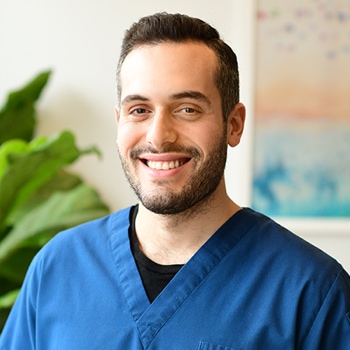Tooth decay is one of the most common oral health issues—and also one of the most preventable. Many patients ask, “Can tooth decay be reversed?” The short answer is: it depends on how far the decay has progressed. While early stages of tooth decay can sometimes be stopped and even repaired through remineralization, advanced decay requires professional dental treatment.
Understanding how tooth decay develops—and knowing when it can and cannot be reversed—can help you take better care of your smile and avoid the need for more serious procedures down the road.
What Is Tooth Decay?
Tooth decay begins when harmful bacteria in your mouth feed on sugars from food and drinks, creating acids that erode the outer layer of your teeth—known as enamel. This early stage is called demineralization, and it occurs when minerals like calcium and phosphate are leached from the enamel, weakening it over time.
If this process continues without intervention, the enamel softens to the point where small holes, or cavities, form. At this stage, decay has officially set in, and your tooth is vulnerable to infection, pain, and further deterioration. As the cavity progresses deeper into the layers of the tooth—eventually reaching the pulp—it may require a root canal or even extraction.
Can Tooth Decay Be Reversed?
Tooth decay can be stopped and, in some cases, partially reversed—but only in its earliest stage, before a cavity has formed. This early stage is known as demineralization, where minerals like calcium and phosphate begin to leach out of the enamel due to acid produced by bacteria in the mouth. If caught early enough, this process can be slowed or even reversed through remineralization, which helps rebuild and strengthen the enamel.
Here’s how you can support remineralization and reverse early decay:
- Brush your teeth twice a day with fluoride toothpaste: Fluoride not only helps remove plaque but also reinforces enamel by promoting the uptake of essential minerals.
- Use a fluoride mouth rinse: This provides an extra layer of protection, especially for those at higher risk of decay, like people with dry mouth or frequent sugar intake.
- Maintain a balanced, tooth-friendly diet: Limiting sugary and acidic foods reduces the amount of acid that harmful bacteria produce. Instead, focus on whole foods rich in vitamins and minerals that support oral health.
- Drink plenty of water throughout the day: Water helps flush away food particles, balances the pH in your mouth, and encourages saliva production—your body’s natural defense against decay.
- See your dentist regularly: Professional cleanings remove hardened plaque (tartar) that can’t be eliminated by brushing and flossing at home. Your dentist can also detect early signs of demineralization before it turns into a cavity.
However, once decay breaks through the enamel and a cavity forms, remineralization is no longer enough. At that point, only a dental professional can treat the damaged area, typically through a filling or another form of restorative care.
When Tooth Decay Can’t Be Reversed
If decay is allowed to progress beyond demineralization, a dental filling or other restorative treatment becomes necessary. The treatment depends on the extent of the decay:
- Fillings: The most common treatment for minor to moderate cavities.
- Crowns: Used when a large portion of the tooth is damaged.
- Root canal therapy: Required when decay reaches the tooth pulp.
- Extraction: Necessary if the tooth is beyond repair.
In all such cases, the decayed material will need to be removed to prevent further spread. This typically involves drilling, though modern technology has made it far more comfortable.

Preventing Tooth Decay
While restorative treatments are highly effective, prevention is always the best approach. Simple, consistent habits can go a long way in protecting your enamel and avoiding cavities altogether:
- Brush your teeth twice a day with fluoride toothpaste.
- Floss daily to remove food particles between teeth.
- Spit, don’t rinse after brushing to let the fluoride continue working.
- Avoid sugary and acidic snacks and drinks, especially between meals.
- Limit alcohol and quit smoking to support oral and overall health.
- Visit your dentist every 6 months for checkups and cleanings.
Early detection of tooth decay is key. Regular dental visits allow us to spot signs of demineralization before decay sets in, giving you a better chance at reversing the damage.
Know the Signs of Tooth Decay
Even if you brush and floss daily, it’s important to pay attention to symptoms that may indicate early decay:
- Tooth sensitivity, especially to sweets or temperature changes
- White or brown spots on the enamel
- Mild discomfort or pressure when biting
- Bad breath or a lingering bad taste
- Visible holes or pits in your teeth
If you’re experiencing any of these symptoms, schedule a dental exam as soon as possible. The sooner decay is detected, the simpler—and less expensive—the treatment will be.
Get Help from a Dental Team That Cares
While tooth decay can’t always be reversed, it can be stopped in its tracks with the right care and early intervention. Whether you’re looking to strengthen your enamel or need treatment for a cavity, our friendly team at Marks Dentistry in Etobicoke, ON is here to help.At Marks Dentistry, we offer a full range of preventive and restorative treatments designed to protect your oral health at every stage. Our compassionate team focuses on making every visit as comfortable and stress-free as possible. Schedule your next exam today and take the first step toward a healthier, more confident smile.



